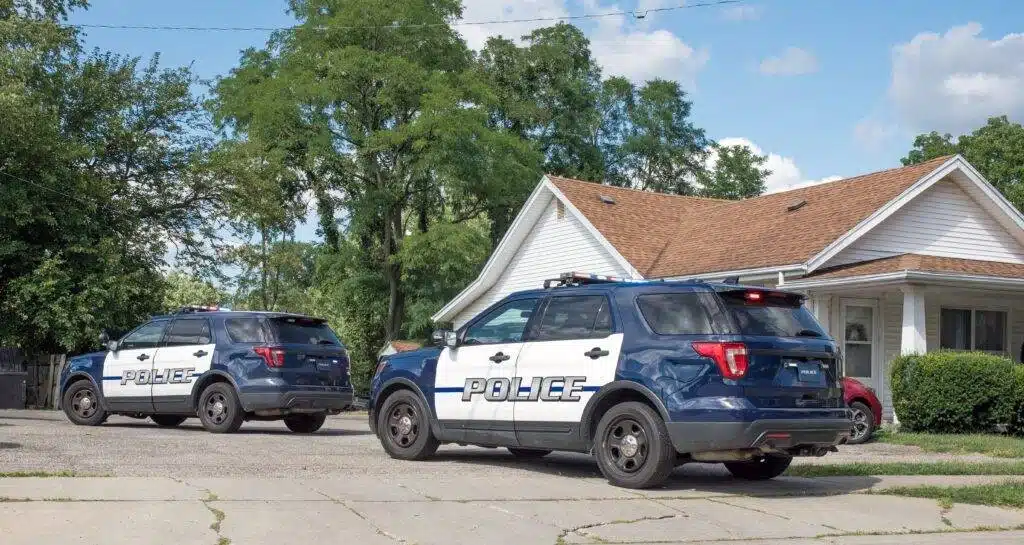Domestic Violence Sentence Enhancement in Colorado
In the state of Colorado, domestic violence (DV) occurs when a perpetrator commits or threatens an act of violence against someone with whom they have had an intimate relationship. Intimate partners can include current or former spouses, past or present unmarried couples, and/or parents of the same child. Acts of domestic violence can include physical violence, stalking, harassment, threats, or even financial coercion.
However, contrary to popular belief, domestic violence in Colorado is not inherently defined as a felony or a misdemeanor. Instead, this charge functions as a sentence enhancement that can be applied to either type of crime. In other words, when an act of domestic violence occurs, an underlying crime is charged (such as assault or harassment) and a DV sentence enhancer is tacked on. This enhancement typically increases the severity of the charges a defendant will face in court.
Common Felonies with Domestic Violence Enhancements
A domestic violence sentence enhancer can be applied to all types of crimes. However, some felonies are accompanied by this additional charge more often than others. In Colorado, these crimes include:
- First- and second-degree assault
- First-degree burglary
- Stalking
- Kidnapping
- Sexual assault
- False imprisonment
Common Misdemeanors with Domestic Violence Enhancements
While they are typically less severe crimes, misdemeanors can also be charged along with a DV sentence enhancer. Some common examples include:
- Third-degree assault
- Harassment
- Criminal mischief
- Violation of a protection order
Penalties for a Domestic Violence Charge in Colorado
A domestic violence charge in Colorado can have far-reaching implications beyond the immediate legal penalties. Specific consequences may include:
- Mandatory Arrest. Colorado requires law enforcement to make an arrest whenever they have probable cause to believe that domestic violence occurred at the scene.
- Protection Order. Domestic violence matters also necessitate the issuance of a mandatory protection order that prohibits contact between the accused and the alleged victim.
- Firearm Restrictions. Under federal law, individuals convicted of domestic violence cannot own firearms.
- Child Custody Impact. Domestic violence convictions can negatively impact the defendant’s child custody and visitation rights.
- Difficulty Finding Employment. Many employers do not look favorably upon domestic violence charges and may be hesitant to hire individuals with this kind of record.
- Housing Issues. Similarly, landlords may not wish to rent to individuals with a criminal record, particularly one involving a domestic violence dispute.
- Immigration Consequences. Non-citizens who are facing domestic violence charges or receive a conviction may face deportation or other immigration issues.
Habitual Domestic Violence Offenders
Colorado law does not look favorably upon domestic violence convictions; as such, there is a specific provision for habitual offenders. For any individuals with three or more domestic violence convictions, future offenses of this kind can be charged as class 5 felonies, regardless of the underlying crime. Because habitual offenders are seen to pose a significant risk to not only their intimate partners, but also the surrounding community, Colorado has instated stricter legal repercussions to combat this.
Best Defenses Against Domestic Violence Charges
When facing a domestic violence charge, it’s crucial to work with an experienced domestic violence defense attorney who understands the Colorado legal landscape. A Denver domestic violence lawyer can help you craft the best possible approach based on your specific case.
While every case is different and demands a unique approach, some common defense strategies include:
- Challenging the Relationship. The defense can show that the alleged victim does not meet the legal definition for an intimate partner.
- Self-Defense. This could be a valid defense if the accused was defending themselves from an attack of some kind.
- Lack of Evidence. The prosecution must prove beyond a reasonable doubt that the alleged act occurred. The defense can point to a lack of evidence to cast doubt on the prosecution’s conclusions.
- False Accusations. Unfortunately, false allegations of domestic violence can and do occur. This is especially common in the context of divorce or custody disputes.
- Violation of Constitutional Rights. Law enforcement is required to follow a certain protocol during the arrest and investigation. If the defendant’s rights were violated during the process, this could be grounds for dismissal.
Can Domestic Violence Charges Be Sealed in Colorado?
In Colorado, convictions for domestic violence-related felonies can never be sealed. However, convictions for domestic violence misdemeanors that are heard in municipal courts can be sealed three years after the conclusion of the case.
In addition, if the domestic violence case is dismissed, it can be sealed right away, regardless of the court in which the case took place or whether the crime being charged was a misdemeanor or felony.
Seeking Legal Representation? Here's Where to Start.
When facing a domestic violence charge in Colorado, the stakes are high. The complex nature of these cases, combined with the potential consequences, makes it crucial to seek experienced legal representation. A skilled domestic violence defense attorney in Denver can help navigate the legal system, protect your rights, and work towards the best possible outcome for your case.
If you’re facing a domestic violence charge in Colorado, don’t navigate this complex legal terrain alone. Contact MBS Law today to discuss your case and explore your options for defense.












